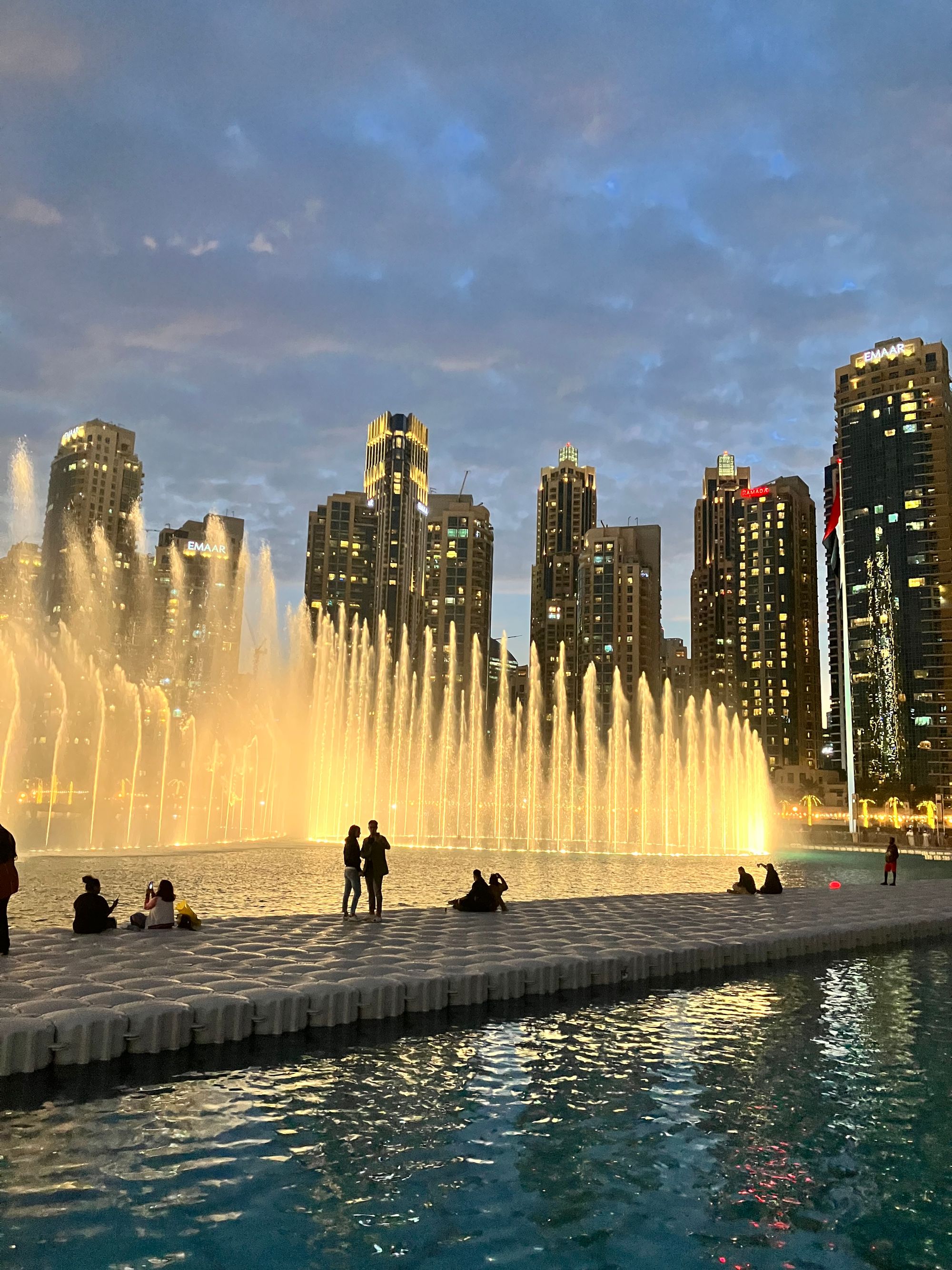Dubai Bling
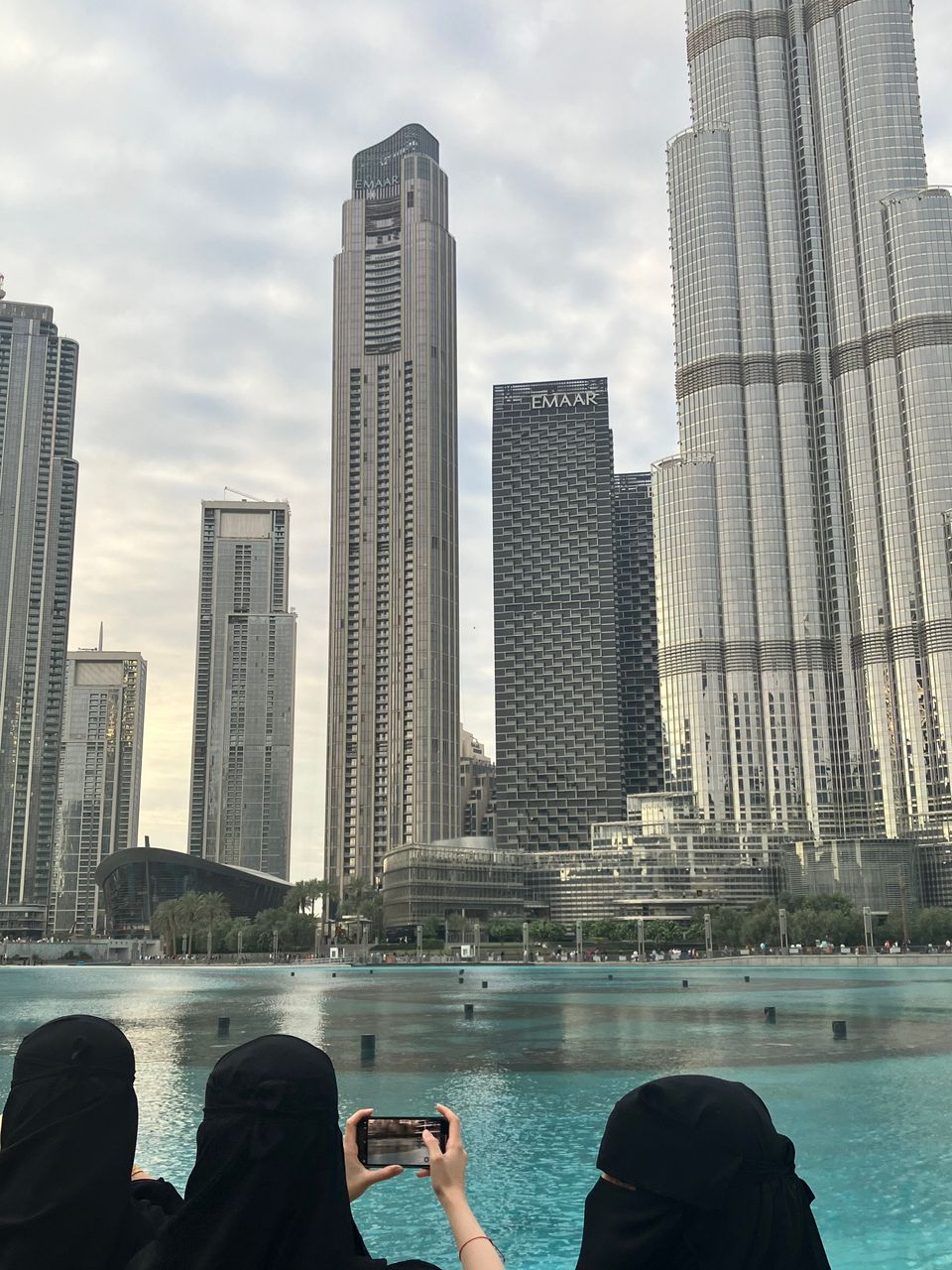
When thinking of Dubai, probably the first association would be its overpowering, overwhelming wealth, displayed ostentatiously. The kind of wealth we only think belongs to The Arabian Nights and its stories about sultans and magic lamps, caves of gold, jewels, and other unfathomable treasures. And that is actually not that far-off an assumption. The ancient tale is alive if modernized into a tourist-aided frenzy of frantic, reckless spending and buying, with ubiquitous branded bags, designer clothes, and conspicuously gilded cars. Still, that is only the surface layer of this city that exists against all odds, like a fleeting mirage in the desert.
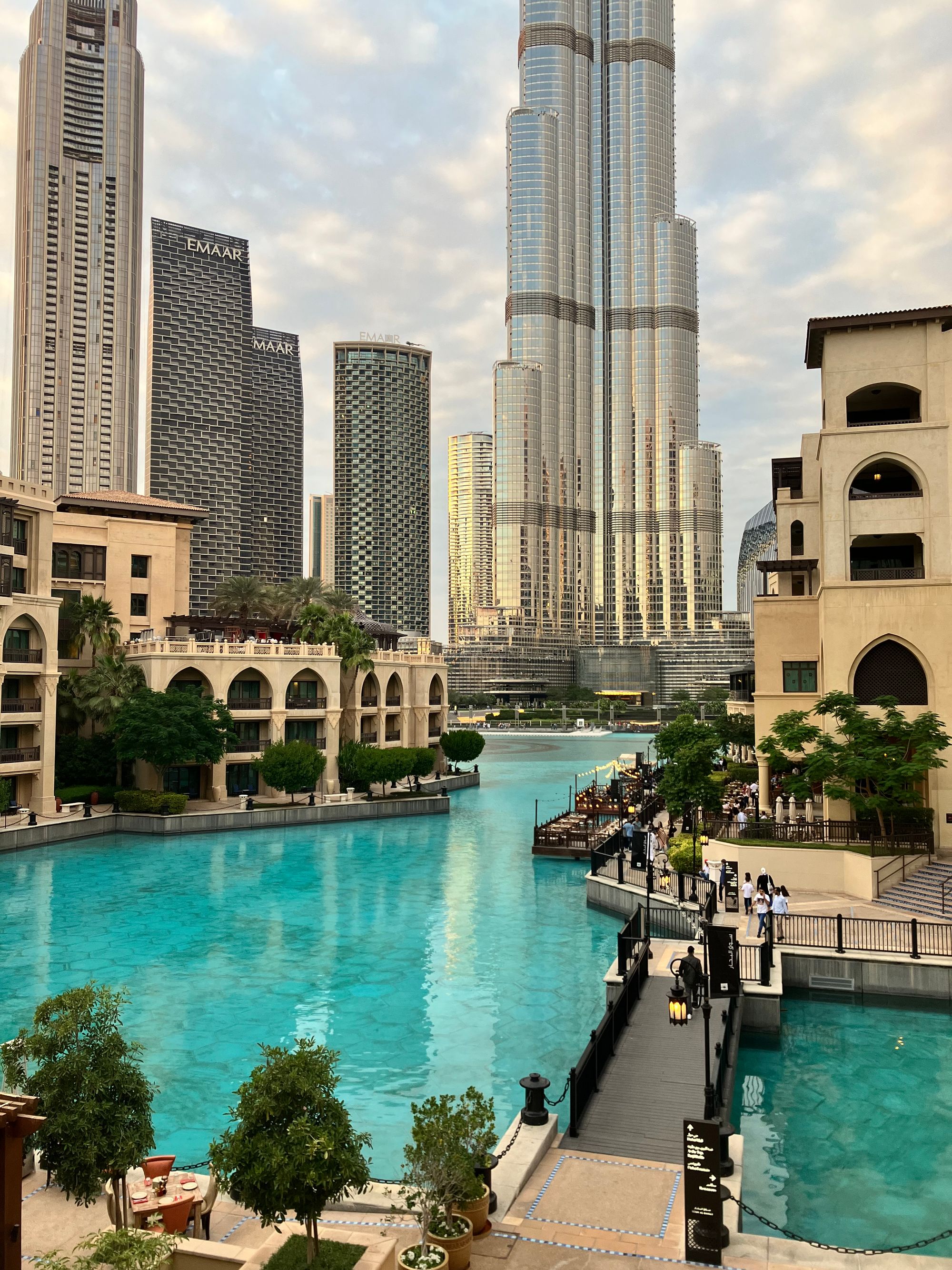
The city itself is far grander and wider than anything that is possible to imagine before arrival. Â Everything is monstrously big, their six-lane highways, and the cars that navigate the streets resemble medium-sized ships. The skyscrapers are so huge and there are clusters of them to boot. New York seems provincial in comparison. It takes so long to reach different sights, that we would always plan too much for every day, even if that meant hoping to see three places only. Traffic jams can annoy you even if you are a tourist with all the free time at your disposal, without stress or hurry, or deadline. How must it be then for the locals? They are essentially constrained and limited to staying where they live. Choosing your location wisely has never rung truer.
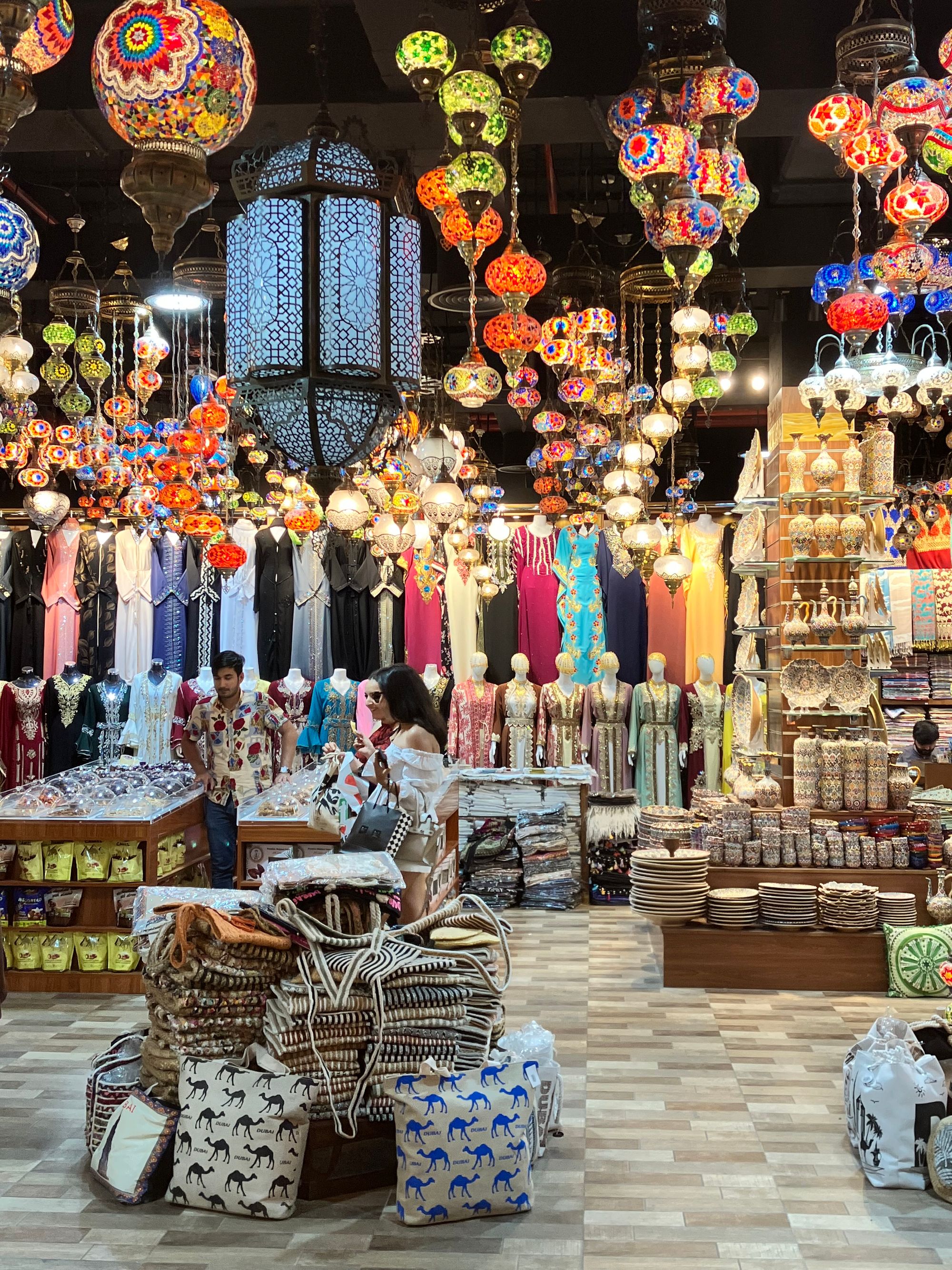
The weather is absolute perfection in winter, mild, and inviting, allowing you to be outside for a very long time, even children are happily playing outside until the wee hours. There are lots of activities for children, playgrounds, parks, and theme parks, with a rather maximalist, Disneylandish feel to them. Freely disregard all the advice to cover up when in Dubai. The city is cosmopolitan, open, relaxed and worldly. Short skirts, bare stomachs and cleavage to spare everywhere. No one will even bat an eye. Mashallah!
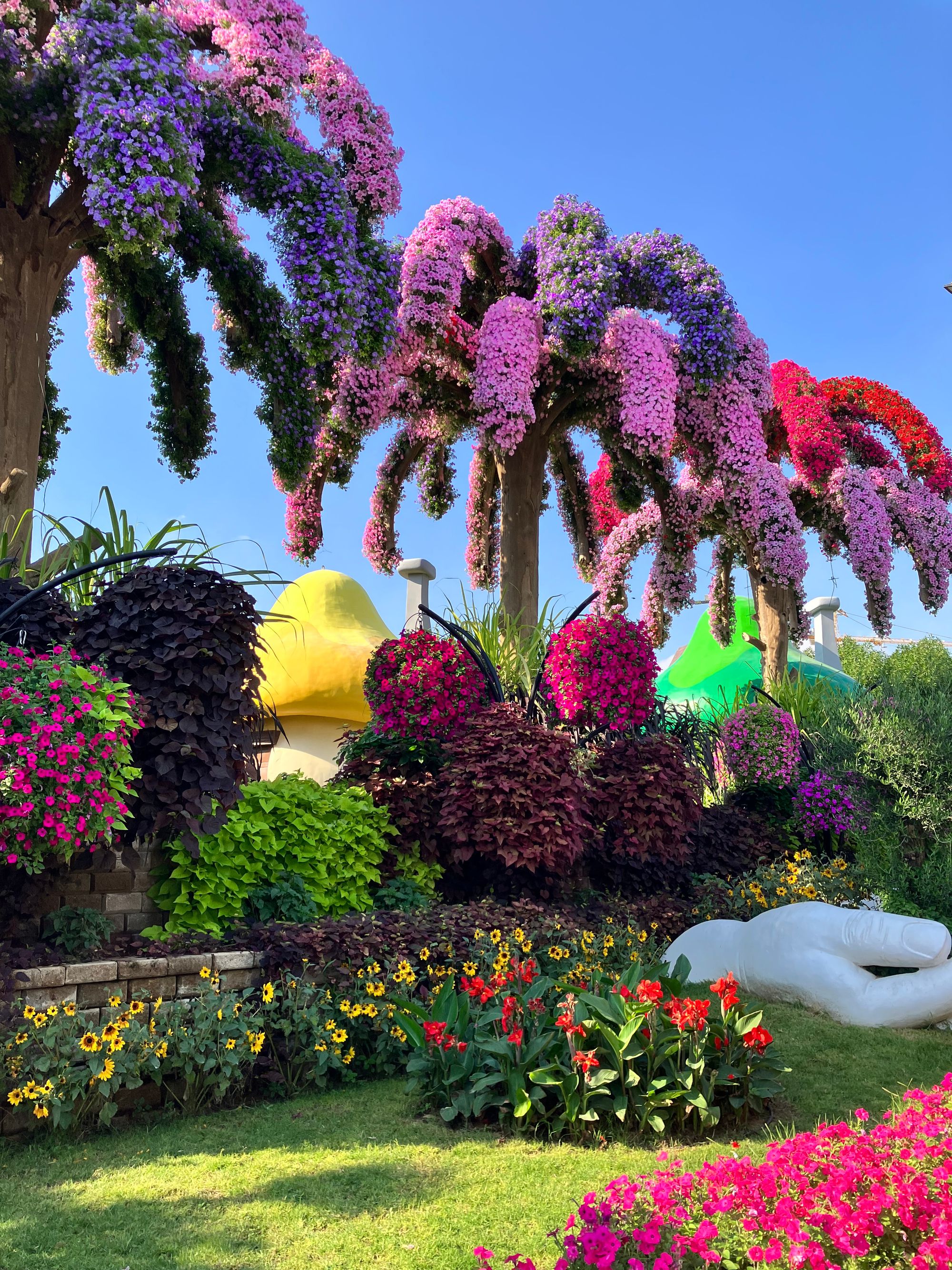
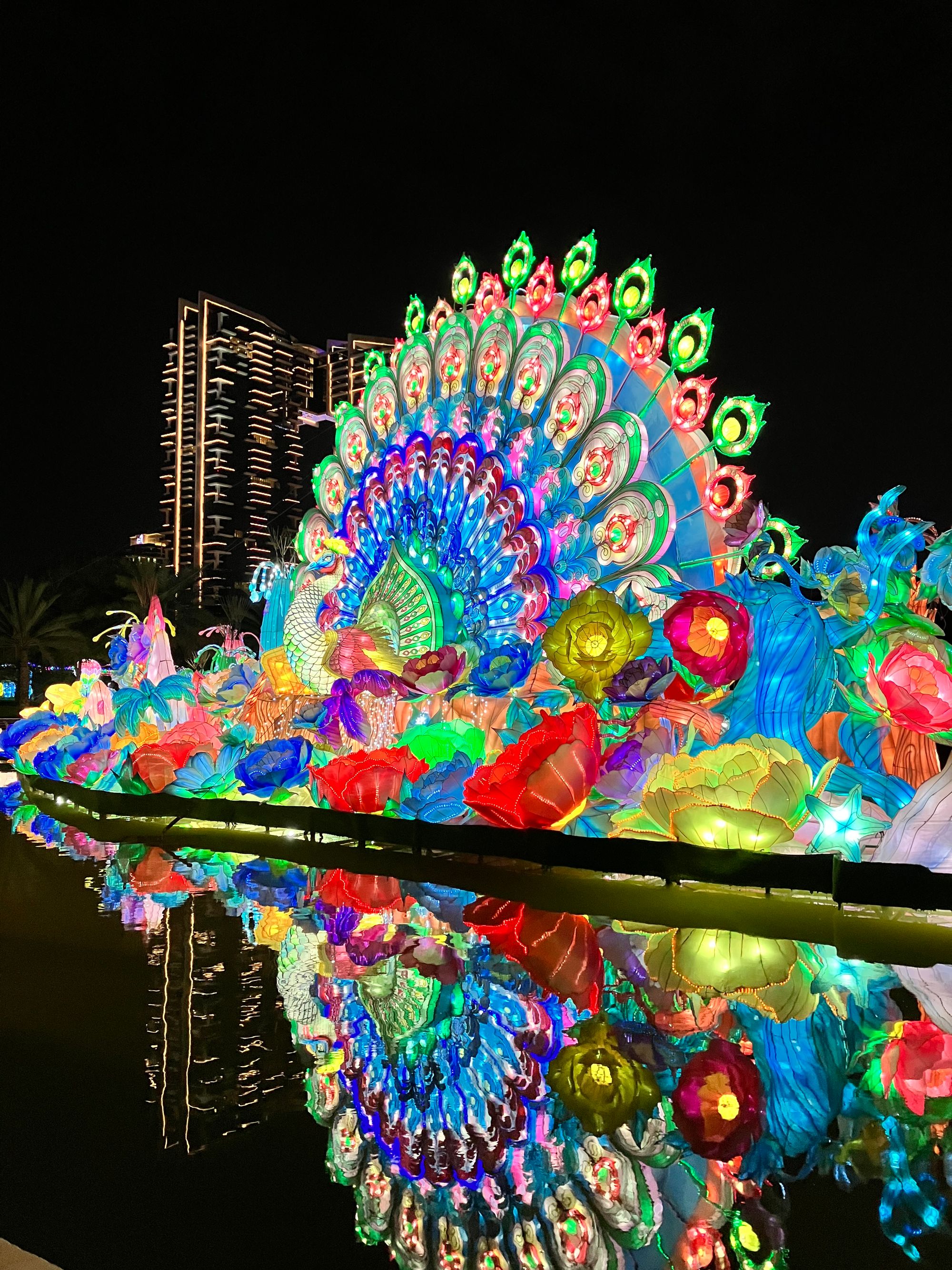
Dubai is also a huge construction site, brand new enormous buildings are being made as we speak. Shiny, daringly contemplated, bizarrely shaped, full of bells and whistles that intend to set them apart from the glass needle next to them. The city will be unrecognizable to us if we visit it in 10 years again. We can't say we filed the memory of Dubai in our mind's eye, we only took a snapshot in time. There is more to Dubai than meets the eye, and the sightseeing shouldn't end with Burj Kalifa and the Dubai Shopping Mall. Seriously, do not go to the Shopping Mall because it is a real-life version of "Abandon Hope All Ye Who Enter Here". I would be still there, wailing and desperately trying to find my way out if it wasn't for my husband who is not orientation-challenged. Â
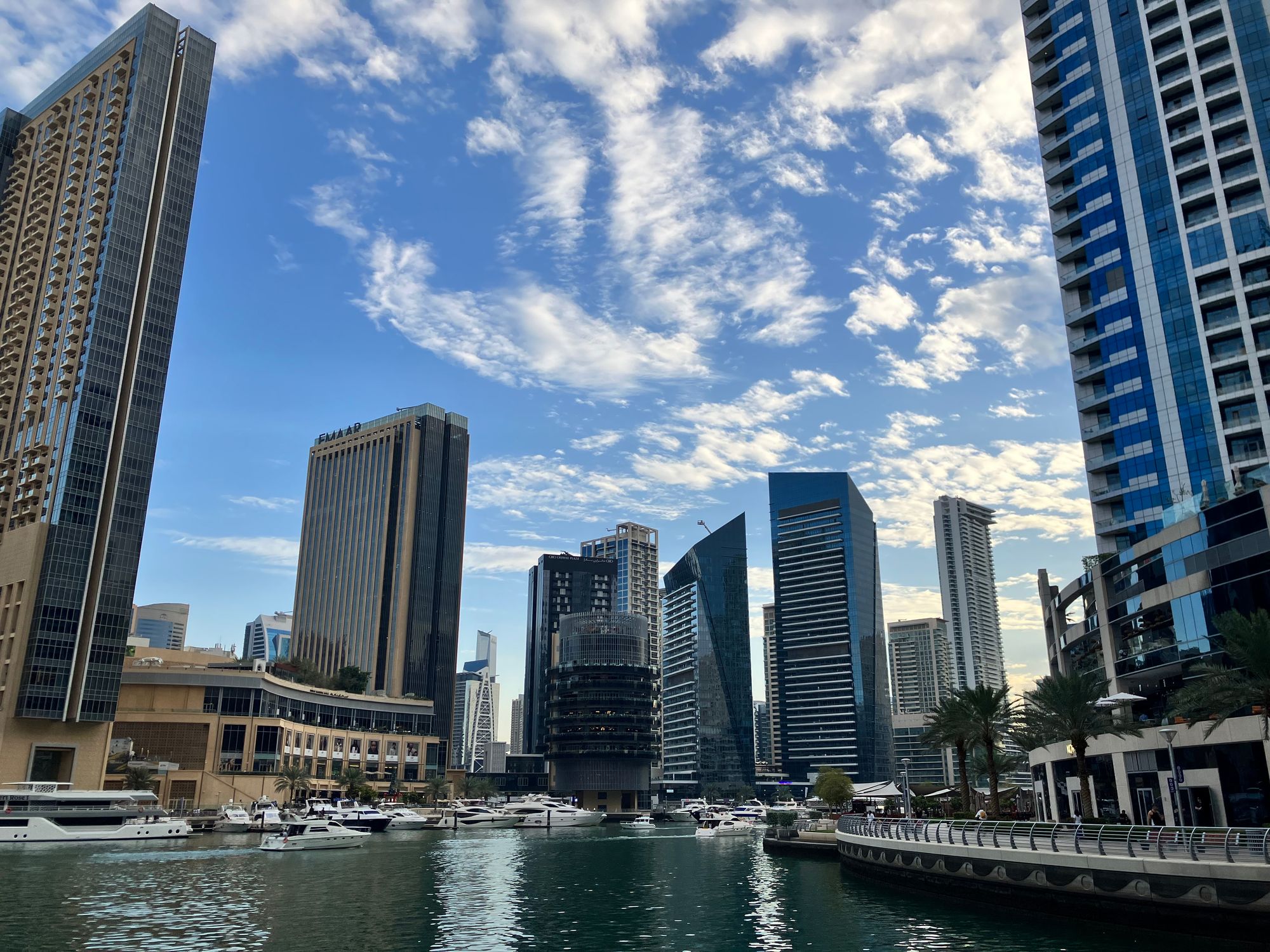
The city this huge must have its underbelly, an invisible, unclean, chaotic, poor alter ego. If you decide to visit any of its souqs, Deira or Al Fahidi, you will find the other side of the glamour and splendour. There is a vast invisible understructure of hard work and exploitation supporting and making all this grandeur, opulence, and leisure possible. Women are always accompanied by their maids and nannies, the chauffeurs patiently waiting outside. Everything can be delivered to your doorstep, and every service imaginable is at your fingertips. Actual Emiratis are hard to spot, maybe they are behind the dark windows of their cars, maybe under heavy veils, maybe at more prestigious job positions that do not provide tourist services. Who is doing all the visible work then? You quickly realize that the biggest Indian diaspora in the world is in Dubai.
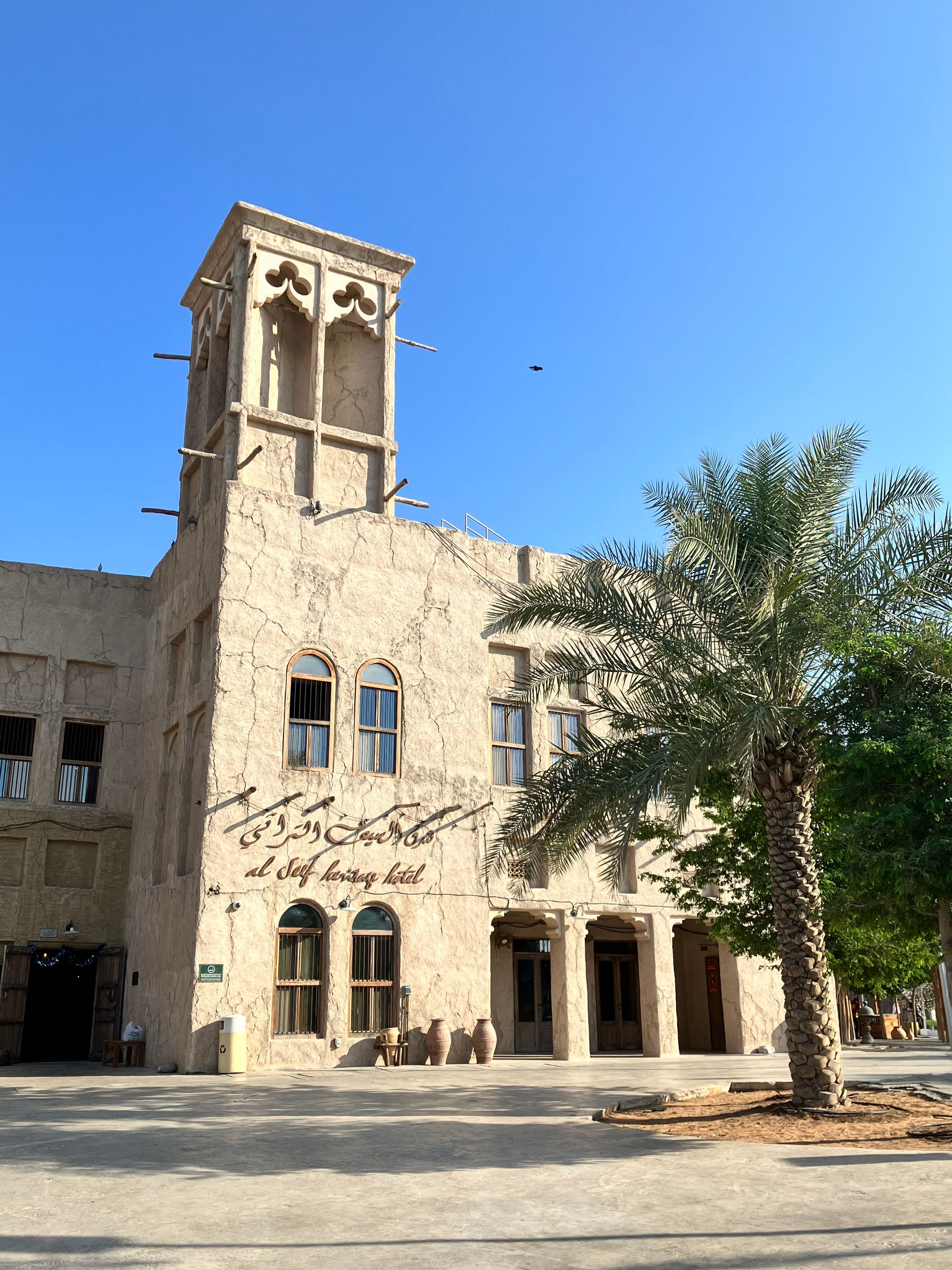
I will tread lightly now. One of the great founding fathers of postcolonial studies, Edward Said, defined orientalism in the 1970s as a set of imagined ideas about the East, that the Westerners hold on to, with the intention to paint the Orient as a place of inferiority. He blew the whistle on all the prejudices and stereotypes that the Westerners unconsciously harbour, that warn them that the Orientals cannot be trusted, that they are slaves to emotions, and irrational beliefs, that all of their women are enslaved in harems, while every Arab is a wealthy sheikh. I have set forth to the Middle East with a preconceived, strong rejection of orientalism on my mind, but I have come back home perplexed.
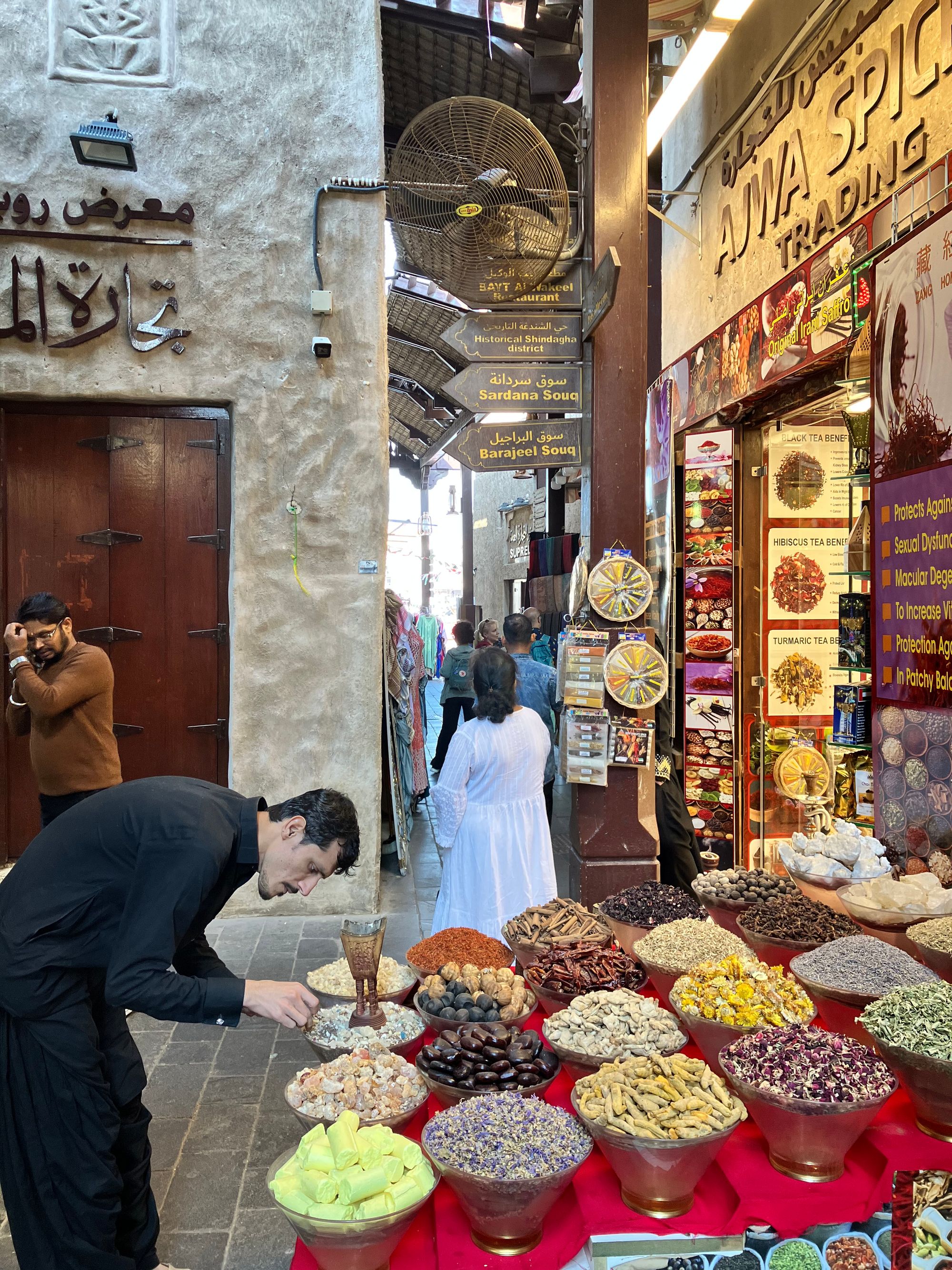
Why do they decorate their lavish buildings with a latticework pattern, suggesting mystery and the zenana seclusion of the Arab women in the time of yore? Isn't that particular latticework problematic because it suggests backwardness and the lack of freedom? Why is it so beautiful if it is objectionable at the same time? The days are drowsy, slow, and sweetened by dates that find their way into everything you eat or drink. They get interrupted only by the frequent calls for prayer, the nasal chanting of the muezzin, exotic and hypnotizing. I am amused by the existence of things that would be challenging to find in Europe: camel milk, prayer rooms, the information about the exact location of Mecca...They use ancient Islamic symbols and signs in the most innovative, modern ways: the four-leaf clover on the statement jewellery that women wear, the Arab writings splayed all over the most shockingly futuristic building, The Museum of Future.

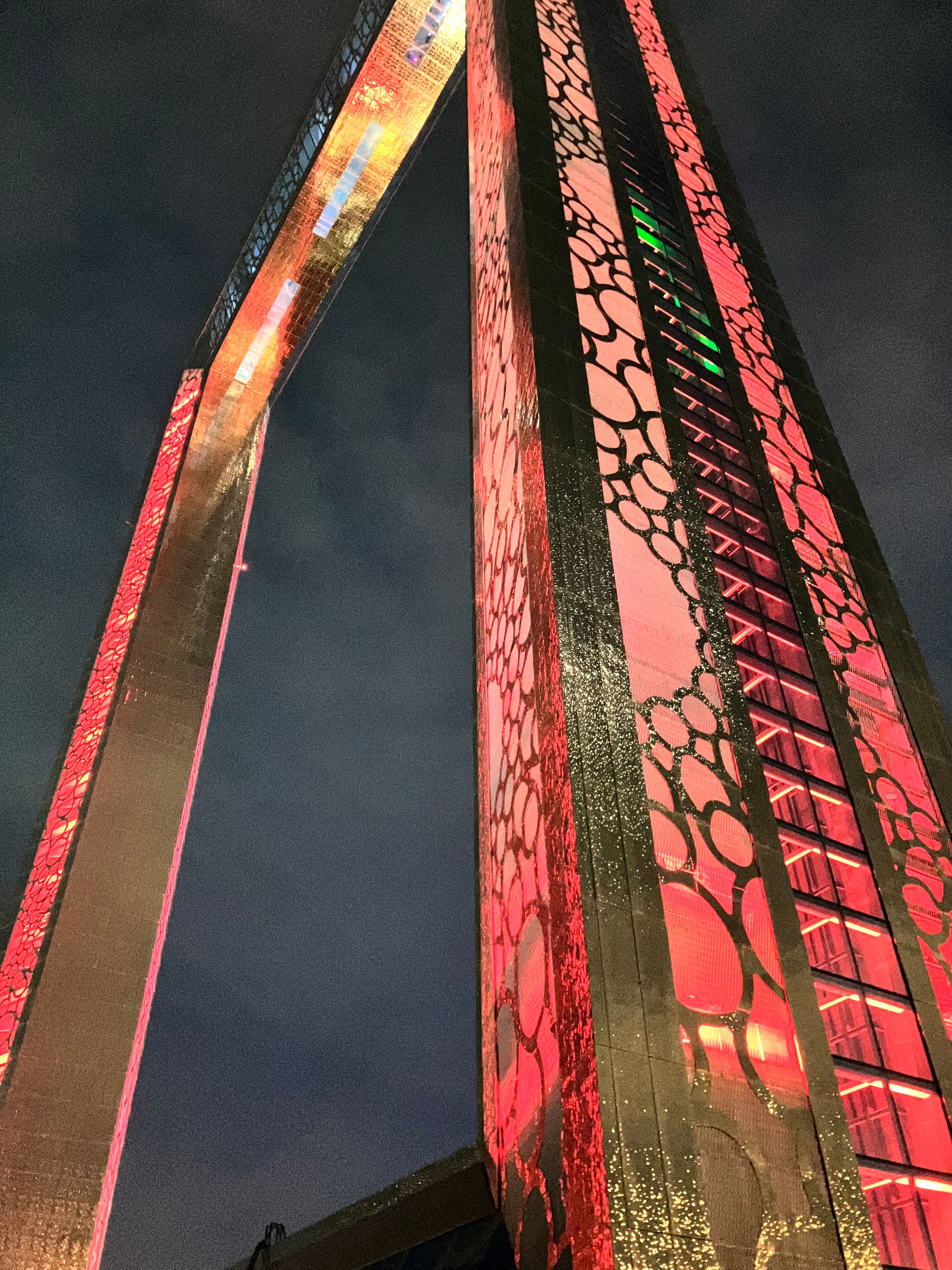
The local people passing by, leave a trail of heavy, intoxicating, sensual perfumes that no one in the West would dare to wear. The scent comes from the resin of oud from agar trees, we learn. So much to understand, and so many mysterious words. Orient is far from inferior, if anything, I found it superior in many aspects. But, different, magical, seductive, beyond grasp, unknowable.
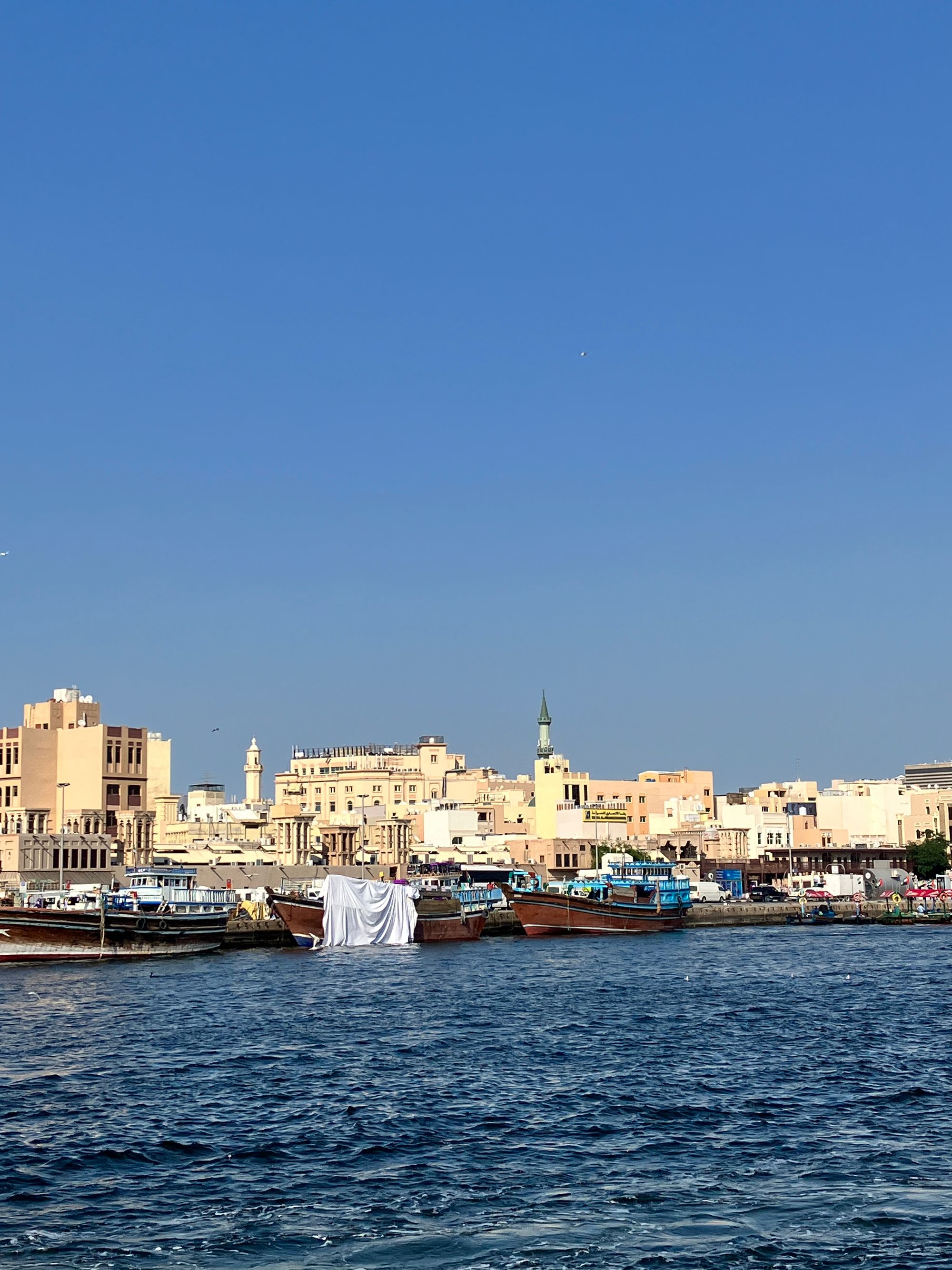
Karak chai is a national drink, a strong black tea, addictive, sweet, and spiced. I could easily imagine Scheherazade drinking it to keep herself awoken and alert. I drank an authentic cup of Karak in a traditional neighbourhood of Al Seef, and at that moment, life was as perfect as it gets. You wish to absorb it all, to do as the Romans do, but it is not easy to cut off the umbilical cord that ties you to Mother Europe. The Emirates have an obsession with all things European, preferably Italian. Clothes, furniture, cars, and perfumes are marketed as desirable because they resemble famous European brands. You can get Italian gelato and a perfect cappuccino anywhere, but Karak will be tougher to find. It will be challenging to find the real local anything, not because it doesn't exist but because no one there believes that you might actually want it. East and West will forever intermingle in mutual fascination. However, I regretted seeing that even the modern Orient has fallen for the bait of its own Orientalizing. Or could it be that it is not orientalism if they perform it themselves?
